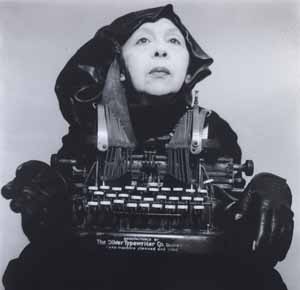Vintilă Horia was a Romanian writer, winner of the Prix Goncourt, and convicted war criminal. His best known novel is God Was Born in Exile (1960).
Ignat Bednarik was a Romanian painter who worked in almost every genre of painting before devoting himself purely to watercolor. He was also interested in decorative art, design, interior decoration and book illustration. In his lifetime, he produced more than 3,000 works of art.

Vasile Pârvan was a Romanian historian and archaeologist.

Gheorghe Petrașcu was a Romanian painter. He won numerous prizes throughout his lifetime and had his paintings exhibited posthumously at the Paris International Exhibition and the Venice Biennale. He was the brother of N. Petrașcu, a literary critic and novelist.

Mircea Aurel Vulcănescu was a Romanian philosopher, economist, ethics teacher, sociologist, and far-right politician. Undersecretary at the Ministry of Finance from 1941 to 1944 in the Nazi-aligned government of Ion Antonescu, he was arrested in 1946 and convicted as a war criminal.

Nicolae Vermont was a Romanian realist painter, graphic artist and muralist. He was noted for his wide range of subjects and his interest in social issues, and was an associate of the post-Impressionists Ştefan Luchian and Constantin Artachino, as well as a friend of the controversial art collector and political figure Alexandru Bogdan-Piteşti.

Dumitru Țepeneag is a contemporary Romanian novelist, essayist, short story writer and translator, who currently resides in France. He was one of the founding members of the Oniric group, and a theoretician of the Onirist trend in Romanian literature, while becoming noted for his activities as a dissident. In 1975, the Communist regime stripped him of his citizenship. He settled down in Paris, where he was a leading figure of the Romanian exile.
Romanian architecture is diverse, including medieval architecture, modern era architecture, interwar architecture, communist architecture, and contemporary 21st century architecture. In Romania, there are also regional differences with regard to architectural styles.
Petru Comarnescu was a Romanian literary and art critic and translator.
Sorin Ilfoveanu is a Romanian painter, designer and university teacher.
Henry Mavrodin was a Romanian painter, designer, essayist, and university teacher. He was born in Bucharest, Romania, on 31 July 1937, and died on 18 May 2022, at the age of 84.
Alma Redlinger was a painter and illustrator from Romania.
Magda Cârneci is a poet, essayist, and art historian born in Romania. She took a Ph.D. in art history at Ecole des Hautes Etudes en Sciences Sociales in Paris (1997) and received several international grants in literature and art history. Member of the well-known “generation of the ‘80s” in Romanian literature, of which she was one of the theoreticians, after the Revolution of December 1989 she became actively involved in the political and cultural Romanian scene of the 1990s. In the 2000s, after working as a visiting lecturer at the National Institute of Oriental Languages and Civilizations (INALCO) in Paris, she was the director of the Romanian Cultural Institute in Paris. At present, she is visiting professor at the National University of Arts in Bucharest, editor-in-chief of ARTA magazine for visual arts, and president of PEN Club Romania. She is also a member of the European Cultural Parliament.

Geta Brătescu was a Romanian visual artist with works in drawing, collage, photography, performance, illustration and film.
Dumitru Almaș was a Romanian journalist, novelist, historian, writer and professor. His prolific output included children's literature, historical novels and textbooks. He was honored by both the Romanian Writers' Society and the subsequent Writers' Union of Romania. He also served as a member of the board of Society for Historical Sciences of Romania.

Barbu Lăzăreanu was a Romanian literary historian, bibliographer, and left-wing activist. Of Romanian Jewish background, he became noted for both his social criticism and his lyrical pieces while still in high school, subsequently developing as a satirist and printing his own humorous magazine, Țivil-Cazon. Lăzăreanu's youthful sympathies veered toward the anarchist underground, prompting him to associate with Panait Mușoiu.

Mircea Constantin Demetriade was a Romanian poet, playwright and actor, one of the earliest animators of the local Symbolist movement. Born in Oltenia to a theatrical family, he largely gave up on a similar career to become a bohemian writer. He associated with, and was inspired by, Alexandru Macedonski, building on early romantic influences at Literatorul magazine. Later, he incorporated borrowings from Charles Baudelaire and Arthur Rimbaud, two of the authors Demetriade would translate into Romanian.
Marian Zidaru is a Romanian artist.

Radu Paladi was a Romanian composer, pianist, and conductor. His compositions include stage and film music, choral works, vocal music and vocal-symphonic works, chamber music, symphonic music as well as concertos.

Alexandru I. Lapedatu was Cults and Arts and State minister of Romania, President of the Senate of Romania, member of the Romanian Academy, its president and general secretary.









